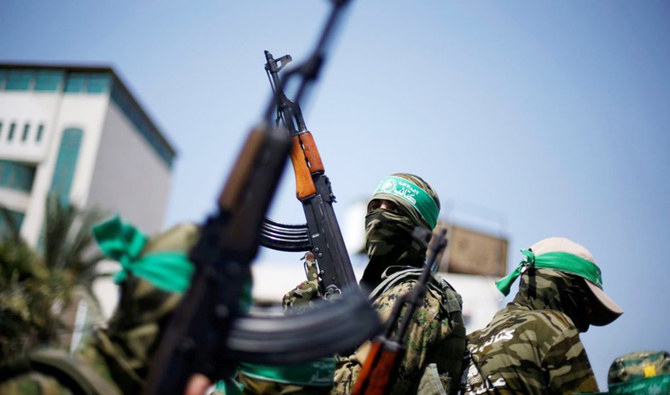
- ARAB NEWS
- 20 Apr 2024

Hazem Balousha
GAZA: June 14 is a hard anniversary for Palestinians. For 13 years since the violent takeover of the Gaza Strip by Hamas, and the expulsion of the Fatah-led Palestinian Authority (PA), life has been difficult, exacerbated by Israel’s decision to blockade the territory as a result.
The blockade has negatively impacted all aspects of life, and Palestinians living in the Gaza Strip and the West Bank do not expect a solution to the division soon.
Ruba Enaya, 27, has never lived in stability in Gaza.
“I grew up in Gaza in light of the split between Fatah and Hamas, and all the time I hear about attempts to restore unity, but I do not see it any time soon,” she told Arab News.
“I graduated from university and do not work consistently. I have no opportunity to travel under the siege. There are restrictions on everything. The conditions are difficult for me, my family and all people,” she said.
Hamas and Fatah have always exchanged accusations of responsibility for the deteriorating Palestinian political situation, while Hamas believes that Fatah did not allow it to govern after its victory in the 2006 legislative elections. Fatah accuses Hamas of practicing violence to maintain control over Gaza.
“The Palestinian division (was) caused by the PA’s position rejecting the election results ... There is no national party that gained from this division,” said Hazim Qasem, a spokesman for Hamas in Gaza.
Fatah said in a press release: “Hamas does not consider, and continues to systematically dismantle and disrupt, the Palestinian national situation, which is directly in the interest of Israel — whether in perpetuating the occupation, or in preventing the establishment of an independent Palestinian state with East Jerusalem as its capital.” All political analysts agree that the division has led to a sharp retreat in international interest in the Palestinian issue, and justified Israel’s avoidance of reaching a political solution to the conflict.
Khalil Shaheen, a political researcher based in Ramallah, said that political interests that have arisen as a result of the Palestinian division help the current situation, and “Hamas’s control of Gaza exposed the Palestinian issue, regionally and internationally.
“Israel has the justification, now that there is no Palestinian party capable of negotiating and reaching a political solution, or capable of establishing an independent Palestinian political system,” he told to Arab News
Israel’s blockade of the Gaza Strip has raised unemployment rates and poverty among the population, and increased tension with Tel Aviv, during which three wars and many rounds of escalation have broken out.
Mukhaimer Abu Saada, a professor of political science at Al-Azhar University in Gaza, explained that the division, in addition to the decline in Arab and international interest in solving the Palestinian issue, gave Israel the incentive to increase settlement in the West Bank, and prompted the recognition of Jerusalem by the US as the capital of Israel.
“Without the division, all of this would not have happened,” he told Arab News.
He added that the prevailing conditions would not allow reconciliation to take place soon.
“There is an ideological dispute between Fatah and Hamas. The economic interests emerging as a result of the division prevent the parties from giving up their interests, and the Arab regional differences reinforce the continuation of the internal Palestinian division,” he said.